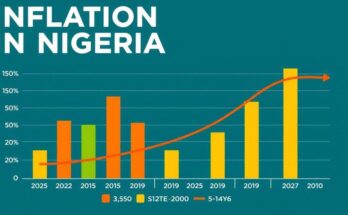On April 2, President Trump will announce new reciprocal tariffs targeting all U.S. trade partners. The tariffs aim to remedy perceived unfair trade practices, with immediate effects on countries imposing high duties, such as a 25% auto import tariff starting April 3. India and other nations are preparing for trade negotiations amid uncertainty and potential retaliatory measures from allies.
On April 2, the White House is set to announce new “reciprocal tariffs” that will affect all U.S. trade partners. This development follows discussions within President Donald Trump’s administration, aiming to finalize a significant trade deal. The announcement signifies a continuation of efforts to amend trade practices that the administration deems unfair, directly impacting both domestic and international economic landscapes.
White House spokeswoman Karoline Leavitt indicated that these tariffs, including a prominent 25% tariff on auto imports effective April 3, target countries imposing high duties on U.S. goods. Leavitt emphasized the urgency and necessity of reciprocity in trade practices for the betterment of the American economy. She stated the intention behind the new tariffs is to correct longstanding trade imbalances.
As a response to the impending tariffs, trade partners, notably India, are observing the evolving situation cautiously. Indian officials are currently strategizing negotiations for a bilateral trade agreement with the U.S., despite Trump’s assertions of potential tariff reductions. They have prepared four scenarios to assess the impacts of these tariffs on their trade relations.
U.S. Treasury Secretary Scott Bessent conveyed to Republican lawmakers that the forthcoming tariffs would establish a cap on the highest levels faced by other countries, hinting at potential reductions if trade partners align with U.S. demands. Reports suggest a consideration from Trump’s aides for a 20% increase in duties across various products from all nations.
Meanwhile, the Wall Street Journal reported on the possibility of implementing a more modest universal tariff, diverging from the high proposed tariff rate. In response to these tariffs, U.S. allies such as Canada and countries within the European Union have expressed strong dissent and readiness to counteract. Canada has committed to imposing their tariffs in retaliation, whereas EU leaders are advocating for a negotiated resolution while preparing comprehensive defense strategies for their market stakeholders.
The anticipated announcement of reciprocal tariffs by President Trump’s administration is poised to dramatically affect international trade dynamics. As nations, particularly India, closely monitor the developments, they are actively seeking strategies to mitigate adverse impacts while considering negotiations with the U.S. The strong responses from allies also suggest a robust pushback against potential unilateral tariff measures. This situation underscores the intricate interplay of global trade relations at a critical juncture in economic policy.
Original Source: www.hindustantimes.com




